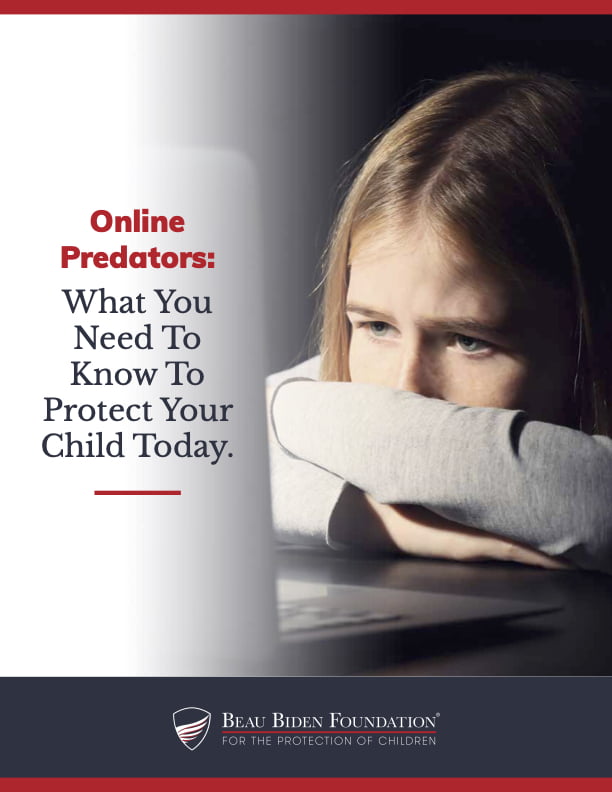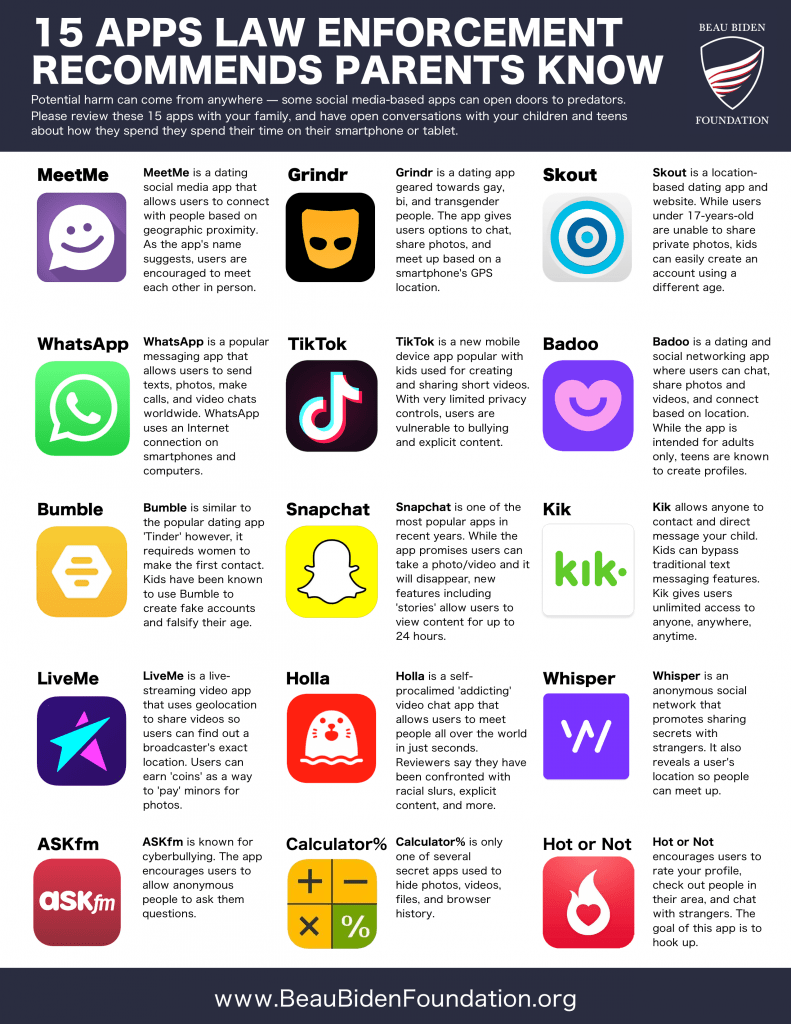Part I of this blog can be found here: www.BeauBidenFoundation.org/OnlinePredatorsBlog1.
How to help prevent against online predators:
The Internet has granted predators unparalleled and open access to children and sexual content about children. The “Wild West” of the Internet is not a thing of the past – it is rampant with criminal activity and it is up to us to combat online predators. You probably wouldn’t be comfortable with your child playing Frisbee with a 35-year-old stranger – but they’re playing with adults they don’t know online every day.
Please review the tips and questions below to help get the online safety conversation started with your children. We also encourage you to maintain an open and honest dialogue around Internet usage with your children as they get older – the conversation with your 6-year-old is not the same conversation with your 16-year-old.
Things you can do:
- Pay attention to items your child may have that you did not provide, such as a mobile phone, gift cards, or clothing.
- Ask yourself if your child is being secretive about online activity.
- Talk to your child about online predators in the same way your parents talked to you about “stranger danger” – but be specific.
- Talk to your child about what they’re sharing online. Help them understand how personal information can be used by predators to begin a conversation or establish trust.
- Talk to your child about how to shut down a conversation with someone they suspect is a predator. For example, if your child is asked for their home address, suggest they respond with the address of a local police station.
- Monitor your child’s device. Know what apps they’re using, and the chat functions those apps have built into them.
- Read their chats.
Things predators may say and that you should be warning your children about.
- Why don’t we talk privately, in a different app?
- Do your parents check your phone or read your conversations?
- Are you a model? You could be, and I can help you with that.
- What’s on your mind? You seem upset – anything you want to talk about?
- Can we meet? Where? (Public places are not safe to meet someone they don’t know.)
- Do you like movies? What kind of music do you like? I love that!
Questions you can ask:
You will probably be angry – with your child and yourself. Remember that your child is scared and needs your guidance. Things may have escalated quickly – or slowly. Your child lost control of the conversation. Take a deep breath, remember they are a child and calmly ask:
- Do you remember when this started?
- Do you think you may have told anyone else about your conversations? Did you save any of them?
- Do you remember if you’ve shared any information like our address, your school, your hobbies or activities?
- Have you sent any pictures? Your child may not know or remember the answers to these questions – and that’s ok.
What to do if your child is a victim?
- Call the police.
- Take screenshots of the chats, save the communication your child has had with the predator.
- Block the predator.
- Report the predator to the app or platform.
- If your child shared any nude or partially-nude images, contact the CyberTipline at 1-800-THE-LOST or www.CyberTipline.org.

Online Predators: What You Need To Know To Protect Your Child Today
Please click here to download our informative and FREE ebook.


